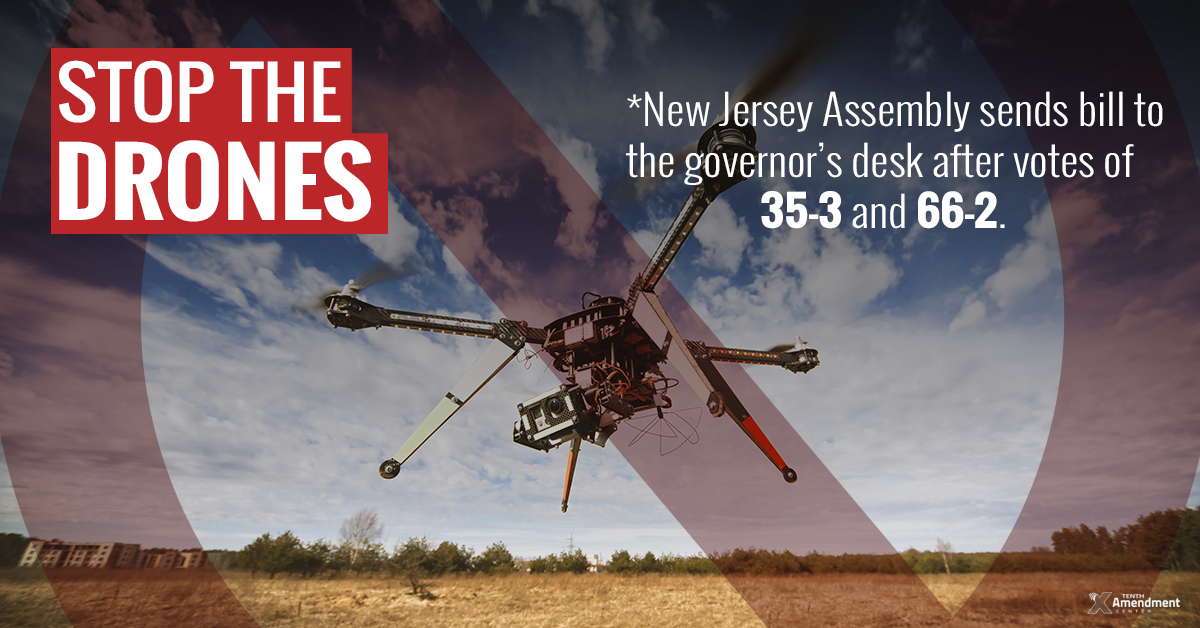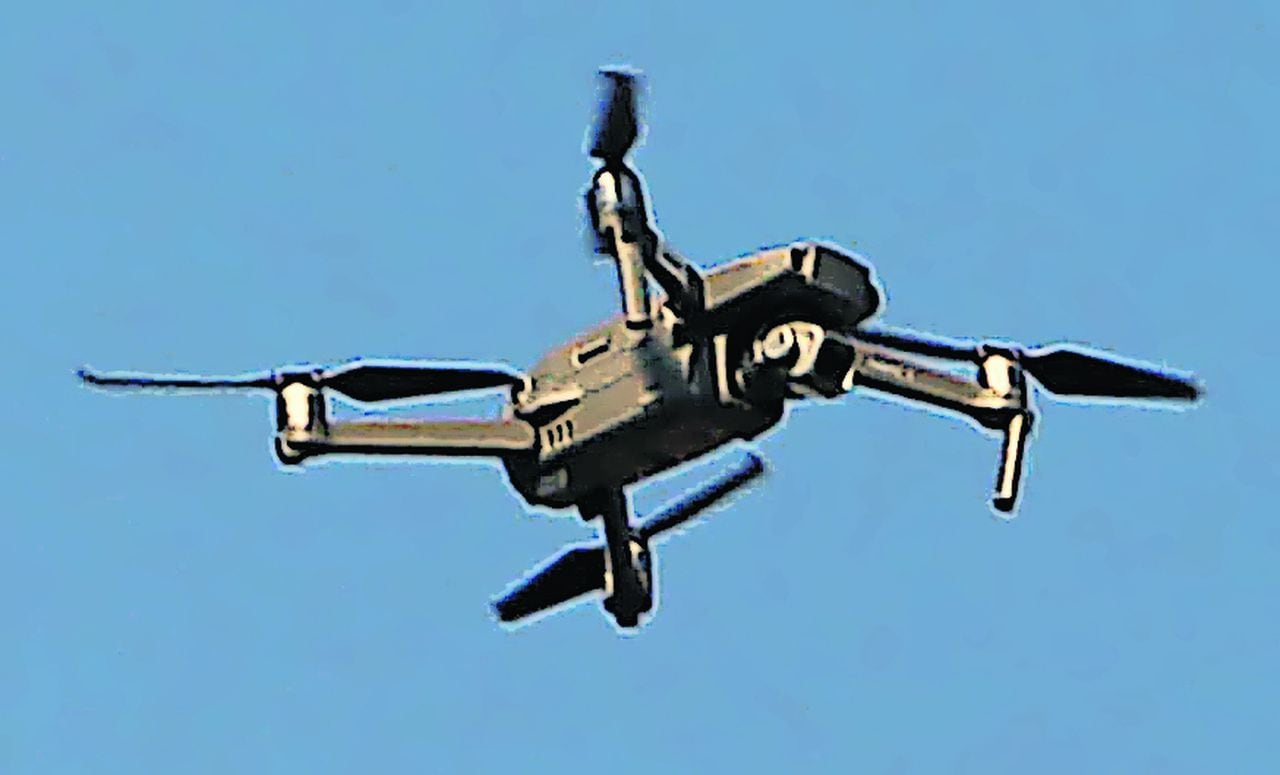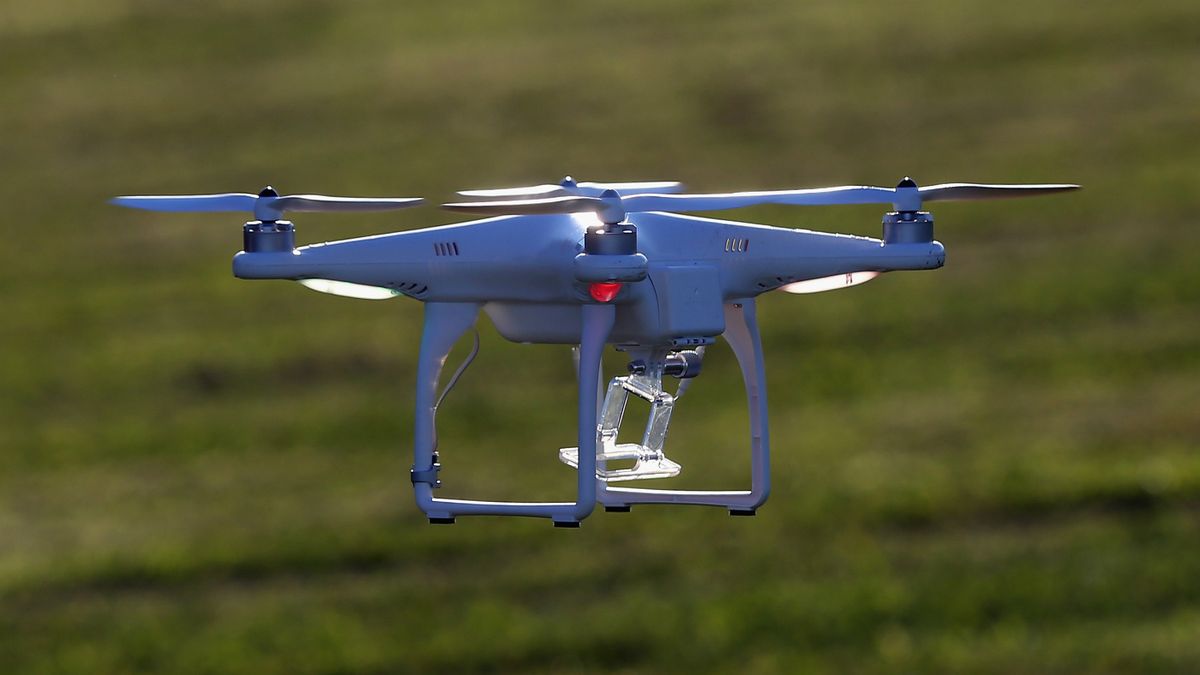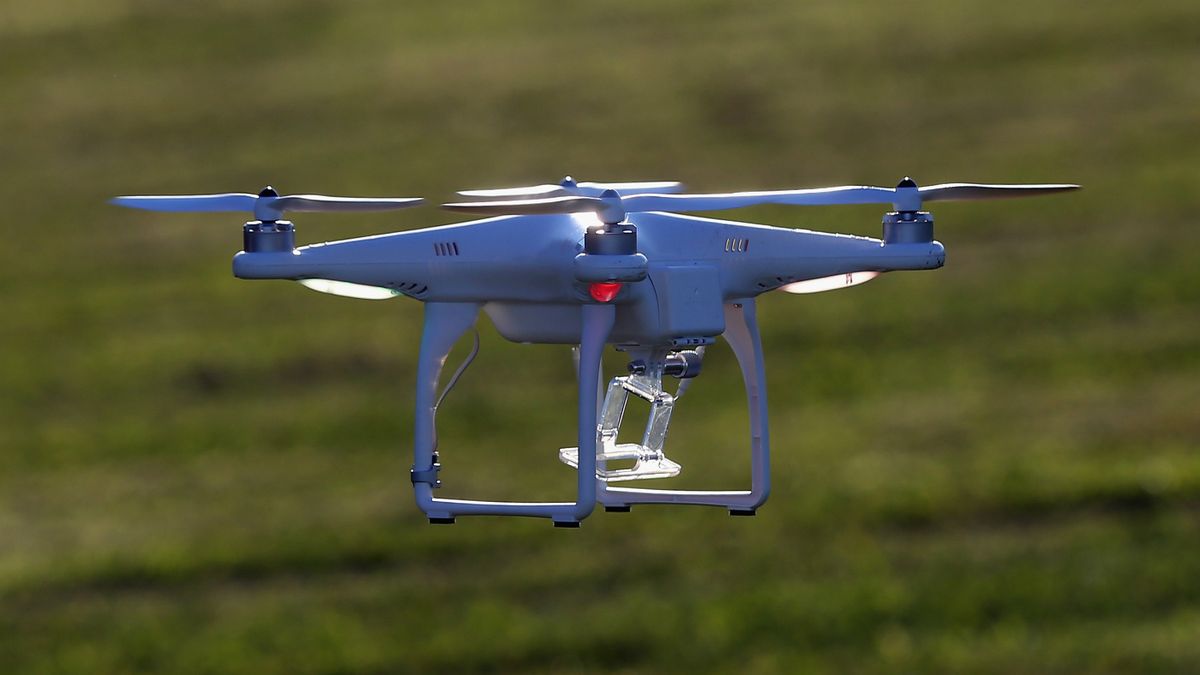Drones Over New Jersey Solved: This comprehensive analysis delves into the legal framework, technological advancements, and public perception surrounding drone usage in New Jersey. We examine solved incidents, exploring the methods used to resolve them and the roles played by law enforcement and technology. The aim is to provide a clear understanding of the current landscape and potential solutions for future drone-related challenges within the state.
From privacy violations to unauthorized airspace incursions, the increasing prevalence of drones has presented unique challenges for New Jersey. This exploration covers the legal ramifications of drone misuse, highlighting specific case studies and analyzing the effectiveness of various detection and tracking technologies. We also address public awareness, outlining strategies for promoting safe and responsible drone operation.
Legal Aspects of Drone Use in New Jersey

Navigating the airspace above New Jersey with a drone requires a thorough understanding of the state’s specific regulations. Failure to comply can result in significant penalties, impacting both personal and professional endeavors. This section Artikels the key legal aspects of drone operation within the state.
Current New Jersey State Laws and Regulations Governing Drone Operation
New Jersey’s drone laws largely align with federal regulations established by the Federal Aviation Administration (FAA). These regulations cover various aspects, including registration requirements for drones weighing over 0.55 pounds, licensing for commercial drone operations, and restrictions on flight near airports and sensitive areas. State-specific laws may add further restrictions or clarify existing federal rules in the context of New Jersey’s unique geographical features and population density.
For instance, New Jersey might have specific regulations concerning flights over public events or near critical infrastructure. It’s crucial to consult both FAA and New Jersey state resources for the most up-to-date information.
Penalties for Violating Drone Laws in New Jersey
Penalties for violating drone laws in New Jersey can range from warnings and fines to more serious consequences, including jail time in severe cases. The severity of the penalty depends on the nature and extent of the violation. For example, flying a drone without proper registration could result in a relatively small fine, while operating a drone recklessly near an airport could lead to significant fines and potential criminal charges.
The New Jersey State Police and other law enforcement agencies are responsible for enforcing these regulations.
Examples of Legally Permissible and Prohibited Drone Use
Legally permissible drone use in New Jersey often includes recreational activities like photography and videography in designated areas, provided the operator adheres to all FAA and state regulations. Commercial operations, such as aerial inspections or real estate photography, require specific FAA certifications and adherence to strict operational guidelines. Prohibited uses commonly involve flying drones near airports without authorization, flying over private property without permission, operating drones at night without proper lighting, and using drones to engage in illegal activities such as surveillance without a warrant.
The recent concerns regarding unauthorized drone activity over New Jersey appear to be resolved. Understanding the complexities of drone operation and payload capacity is crucial; for instance, exploring the specifications of different drone models, such as those detailed on the remington drone loads page, can help illuminate these aspects. This knowledge contributes to better regulation and safer airspace management, ultimately ensuring the continued resolution of similar drone-related incidents in New Jersey.
Comparison of New Jersey’s Drone Laws with Those of Neighboring States
New Jersey’s drone laws are generally consistent with those of its neighboring states, primarily adhering to the overarching federal regulations. However, minor variations might exist regarding specific state-level restrictions, such as those pertaining to flight over certain protected areas or during specific events. For example, Pennsylvania might have stricter regulations concerning flights near its numerous state parks, while New York might have specific rules concerning drone operations within its larger urban areas.
Direct comparison requires reviewing each state’s specific regulations.
Hypothetical Scenario Involving a Drone Violation and Legal Proceedings
Imagine a scenario where a drone operator, without proper FAA registration or permission, flies their drone over a crowded beach in Atlantic City during a major summer event. The drone malfunctions and crashes, causing minor injuries to a bystander. This incident could result in multiple charges, including operating an unregistered drone, reckless operation of an unmanned aircraft, and potential civil liability for the injuries caused.
Law enforcement would investigate, potentially issuing fines and citations. The injured party could pursue a civil lawsuit against the drone operator for damages. The case would proceed through the New Jersey court system, with potential penalties including substantial fines, legal fees, and even jail time depending on the severity of the charges and the outcome of the legal proceedings.
Common Drone-Related Incidents in New Jersey: Drones Over New Jersey Solved

Drone incidents in New Jersey, while not as frequent as in more densely populated areas, still occur, raising concerns about safety, privacy, and security. These incidents highlight the need for responsible drone operation and effective enforcement of existing regulations. Analyzing solved cases provides valuable insight into common violations and investigative methods.
The recent concerns regarding unauthorized drone activity over New Jersey seem to have subsided, at least for now. The situation was complicated by an incident where a drone was shot down, as detailed in this report: drone shot down in nj. This incident highlights the challenges authorities face in managing airspace security and underscores the ongoing efforts to ensure safe skies over the state.
Hopefully, this marks a turning point in resolving the overall drone issue in New Jersey.
Categories of Drone-Related Violations in New Jersey
Several categories of drone-related violations have emerged from reported incidents in New Jersey. These include privacy infringements, trespassing onto private property, and unauthorized flights in restricted airspace. These violations often overlap, and investigations frequently uncover multiple offenses within a single incident.
Examples of Solved Drone Incidents
While comprehensive, publicly accessible databases of solved drone incidents in New Jersey are limited, news reports provide illustrative examples. Many incidents involve drones operating near airports or other sensitive locations, leading to airspace restrictions and investigations by the Federal Aviation Administration (FAA) and local law enforcement. Others involve drones capturing images or video on private property without permission, raising serious privacy concerns.
The methods used to solve these incidents vary, but often involve a combination of witness testimonies, technological tracking of the drone’s signal, and analysis of video or photographic evidence.
Solved Drone Incident Case Summaries
| Location | Date (Approximate) | Violation Type | Resolution |
|---|---|---|---|
| (Example Location – Specific location data is often redacted from public reports for privacy reasons) Near Newark Liberty International Airport | 2022 | Unauthorized Airspace Operation, Potential Interference with Air Traffic | FAA investigation, potential fines and/or license suspension for the drone operator. |
| (Example Location – Specific location data is often redacted from public reports for privacy reasons) Suburban residential area | 2023 | Privacy Infringement (drone footage of private property) | Police investigation, warning issued to the drone operator, no further action taken (depending on the context of the footage). |
| (Example Location – Specific location data is often redacted from public reports for privacy reasons) Near a major sporting event | 2021 | Unauthorized Airspace Operation, Potential Security Threat | Drone seized, operator identified and potentially faced criminal charges. |
The Role of Law Enforcement in Drone Regulation

New Jersey law enforcement agencies play a crucial role in ensuring the safe and legal operation of drones within the state. Their responsibilities range from investigating drone-related crimes to educating the public about responsible drone use. This involves a complex interplay of established law enforcement procedures, specialized training, and the ever-evolving technological landscape of drone technology.
Law Enforcement Agencies’ Responsibilities in Addressing Drone-Related Issues
New Jersey State Police, county sheriffs’ departments, and local police forces all have jurisdiction over drone-related incidents within their respective areas. Their responsibilities include responding to reports of unauthorized drone flights, investigating potential violations of airspace regulations, and apprehending individuals involved in illegal drone activities, such as those involving surveillance or the transport of contraband. They also work in conjunction with the Federal Aviation Administration (FAA) to address issues that may fall under federal jurisdiction.
This collaborative approach is essential for effective drone regulation.
Training and Resources for Handling Drone Incidents
Law enforcement agencies in New Jersey are increasingly recognizing the need for specialized training in drone detection, identification, and countermeasures. Training programs may cover topics such as drone technology, airspace regulations, legal frameworks governing drone use, and techniques for safely and effectively responding to various drone-related incidents. Resources may include access to drone detection equipment, specialized software for tracking drone signals, and collaborative partnerships with experts in drone technology and aviation law.
The availability of these resources and training varies depending on the agency’s size and budget.
Challenges Faced by Law Enforcement in Regulating Drone Use
Several challenges hinder effective law enforcement response to drone-related issues. These include the rapid technological advancements in drone capabilities, making it difficult for law enforcement to keep pace with evolving threats. The relatively small size and maneuverability of drones can make them difficult to detect and track, particularly in urban environments. Furthermore, determining the operator’s identity can be challenging, as drones can be operated remotely from significant distances.
Legal ambiguities surrounding drone use in certain situations also complicate enforcement efforts. Finally, budget constraints may limit the availability of advanced detection and tracking equipment.
Strategies for Improving Law Enforcement Response to Drone-Related Crimes
Improving law enforcement response requires a multi-pronged approach. This includes investing in advanced drone detection and tracking technologies, such as radar systems and signal jammers (used responsibly and in accordance with the law). Increased collaboration between law enforcement agencies, the FAA, and private sector drone experts is crucial for information sharing and the development of best practices. Enhanced training programs for law enforcement personnel should focus on practical scenarios, emphasizing legal aspects and ethical considerations.
Finally, clear and concise legislation addressing drone use and related offenses is essential for providing a solid legal foundation for enforcement actions.
Hypothetical Training Scenario for Law Enforcement Officers, Drones over new jersey solved
A training scenario might involve a simulated incident where a drone is observed flying near a critical infrastructure facility, such as a power plant or airport. Officers would be tasked with identifying the drone, determining its operator’s location (if possible), and assessing the potential threat. The scenario would then require them to make decisions regarding appropriate response actions, such as contacting the FAA, attempting to intercept the drone (if safe and legal), or coordinating with other agencies.
This scenario would involve a debriefing session focusing on legal considerations, communication protocols, and the effective use of available resources and technology. The scenario would also cover potential ethical dilemmas, such as balancing public safety with individual rights.
In conclusion, addressing the complexities of drone usage in New Jersey requires a multi-faceted approach. By strengthening legal frameworks, investing in advanced detection technologies, and fostering greater public awareness, we can mitigate potential risks while harnessing the beneficial applications of drones. Continued collaboration between law enforcement, technology developers, and the public is crucial to ensuring a safe and responsible drone environment in the Garden State.
Quick FAQs
What are the most common types of drone violations in New Jersey?
Common violations include unauthorized flights near airports, flying over private property without permission, and violating privacy laws by recording individuals without consent.
How can I report a drone violation in New Jersey?
Contact your local law enforcement agency or the Federal Aviation Administration (FAA).
What are the penalties for illegal drone operation?
Penalties vary depending on the severity of the violation and can include fines, jail time, and the seizure of the drone.
Are there any specific areas where drone flight is completely prohibited in New Jersey?
Yes, airspace restrictions exist near airports, critical infrastructure, and certain sensitive locations. Check FAA regulations and local ordinances.
